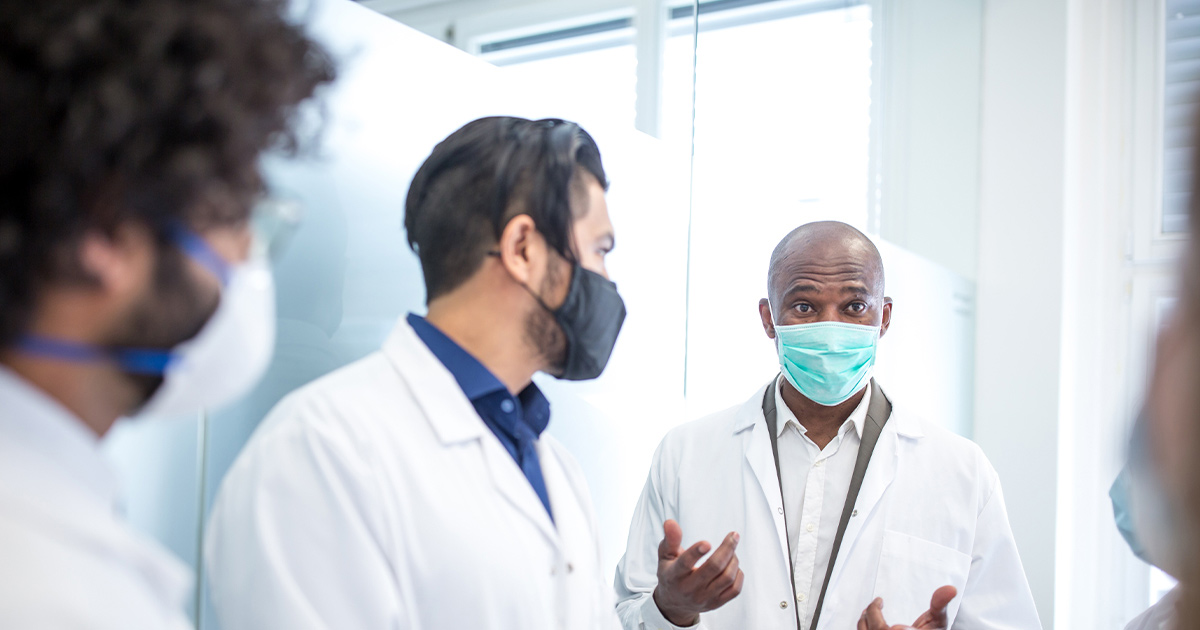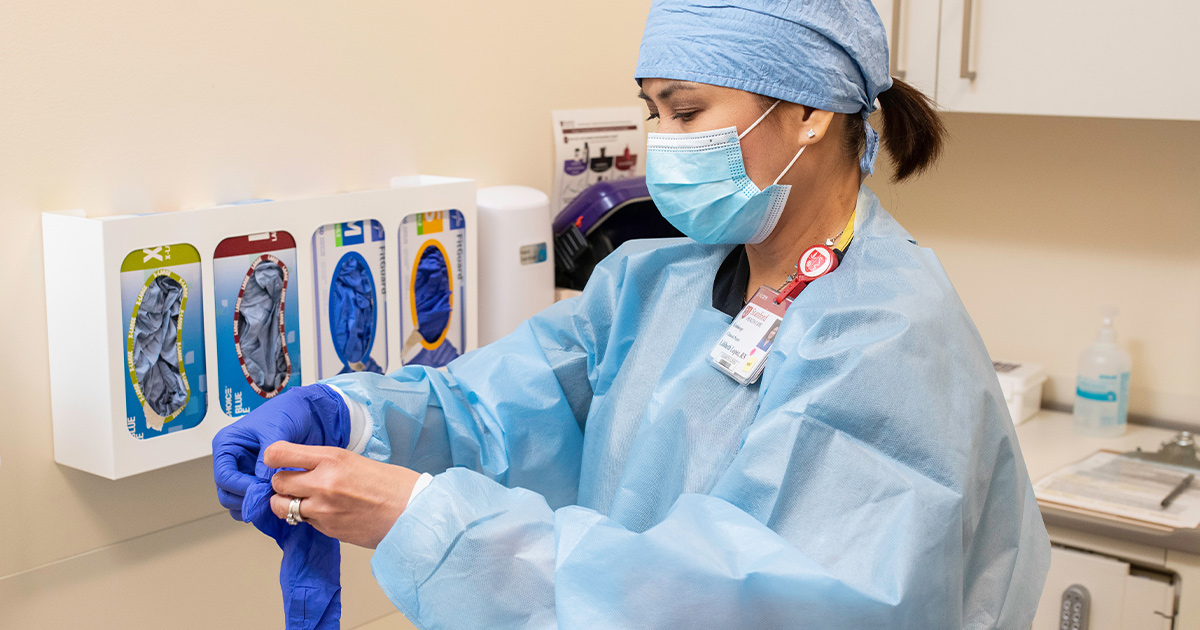Urology
Part of Tri-Valley

Leaders in Urology Treatments
Our urologists have expertise in treating common, complex, and rare conditions of the urinary tract and male reproductive organs. You’ll find convenient local care with access to the latest innovations and research, including diagnosis and treatment for erectile dysfunction, stones, prostate problems, urinary incontinence, and urological cancers.
What We Offer You for Urology Care
- Specialized expertise in treating issues affecting the urinary tract, including prostate disease, erectile dysfunction, stones, and urinary incontinence. Go to Conditions Treated
- Advanced treatment including nonsurgical and minimally invasive care for urinary blockages and cancer, reconstructive surgery, and overactive bladder. Go to Treatments
- Robotic surgery approaches to prostate and kidney procedures, delivering highly precise surgical treatment with smaller incisions and a faster recovery. Go to Treatments
- Team-based care, with coordinated treatment planning and delivery tailored to your needs for issues like cancer, kidney disease, or reproductive problems. Go to Your Care Team
- Comprehensive support services to help you and your family focus on health and healing. Go to Support Services
- Ease of access to care, with several locations offering personalized treatment planning with a compassionate approach, delivered by urologists near you. Go to Accessing Care
At Stanford Health Care Tri-Valley, our urologists care for adults with common to complex urologic problems. Our team treats urinary incontinence, kidney stones, hematuria (blood in urine), and sexual dysfunction in men. We also treat prostate disease, including benign prostatic hyperplasia (BPH). And we diagnose, treat, and coordinate care for bladder, kidney, prostate, and testicular cancer.
Compassionate, expert care for conditions affecting the urinary tract and male reproductive organs, close to home.
Our urologists diagnose and treat all types of urinary tract diseases and problems, including:
Benign prostatic hyperplasia (BPH)
Enlarged prostate (gland located directly below the bladder), usually due to age, that can cause difficulty with urination or loss of bladder control
Urological cancers
- Bladder cancer: Cancer that forms in the bladder, usually affecting older adults
- Kidney cancer: Cancer that starts in the kidneys, most often a type called renal cell carcinoma
- Prostate cancer: Cancer of the prostate gland, which may grow slowly or be more aggressive
- Testicular cancer: A highly treatable form of cancer that forms in a testicle, most often affecting men between ages 15 and 44
- Ureteral and upper tract urothelial cancer: Cancer that forms in the lining of the ureters (tubes that carry urine from your kidneys to your bladder), sometimes affecting people who have also had bladder cancer
Structural problems
- Upper urinary tract obstruction: Blockage of the upper urinary tract, which includes the kidneys and ureters
- Urethral strictures or obstructions: Narrowing or blockages in the urethra caused by injury or disease such as urinary tract infections, which can affect the passage of urine and semen
Stones
Crystalized minerals that form pebbles/stones in the kidney or bladder, which may pass on their own or may need medical or surgical removal
Male reproductive concerns
- Erectile dysfunction (ED): Inability to get or keep an erection, sometimes called impotence
- Hydrocele: Swelling in the scrotum (sac that contains the testicles) or fluid around the testicles
Urinary tract conditions
- Elevated PSA: High prostate-specific antigen (PSA) level, a test result that can be a warning sign of prostate cancer but may indicate other, noncancerous prostate conditions
- Blood in urine (hematuria): Visible blood or blood detected in a urine test that may indicate injury, infection, cancer, or disease of the bladder or kidneys
- Urinary incontinence in men and women: Inability to control urine flow, including functional, stress, urge, and overflow incontinence, and overactive bladder syndrome (OAB)
- Urinary retention: Difficulty completely emptying the bladder
- Neurogenic bladder: Lack of bladder control due to a brain, spinal cord, or nerve condition such as multiple sclerosis, Parkinson’s disease, a stroke, or a tumor
- Weakened or damaged muscles that support pelvic organs, including the reproductive organs and bladder, which can lead to pelvic organ prolapse or urinary incontinence
We work closely with you to identify the source of urological disorders that can cause embarrassment, pain, and worry. Then we discuss your treatment options, starting with the least invasive. Our doctors are committed to your comfort and dignity and work closely with you to diagnose and identify the best available option to help you regain your quality of life.
All Treatments
Our doctors offer state-of-the art medical and surgical treatment in all aspects of adult urology, including:
Diagnosis
- Laboratory tests: Blood tests, hormonal tests, semen evaluation, and urinalysis to pinpoint an infection or infertility
- Prostate imaging and biopsy: Imaging-guided test to take a small sample of prostate tissue to evaluate for cancerous cells or other issues
- Uroflowmetry: Test to measure urine flow rate and volume to check urinary tract function
- Bladder post void residuals: Test to measure how much urine remains in your bladder after urination
- Testicular ultrasound: Noninvasive test that uses sound waves to produce images of the testicles and scrotum
Nonsurgical treatments
- Injections: Injections of medication to treat ED
- Bladder Botox®: Safe injections of botulism toxin to treat overactive bladder
- Percutaneous tibial nerve stimulation (PTNS): Indirect electrical stimulation to treat overactive bladder using an electrode placed on the tibial nerve, near the ankle
Surgery
- Vasectomy: Medical sterilization by cutting the tubes that carry sperm in a simple outpatient procedure
- BPH surgeries: To treat enlarged prostate, we offer procedures including:
- Transurethral resection of the prostate (TURP): Procedure to trim away part of the prostate using a wire on a thin tube passed through the urethra, with no incisions
- Laser surgery: Prostate surgery using a laser to vaporize prostate tissue, shrinking the prostate and relieving urinary blockages or other issues
- Water vapor therapy: Minimally invasive, outpatient procedure using steam (water vapor) to destroy enlarged prostate tissue and ease urinary symptoms
- Robotic radical prostatectomy: Use of a surgical robot to precisely remove the prostate with small incisions and low risk of injury to surrounding organs
- Stone removal surgery: Procedure to remove bladder or kidney stones, often using holmium or thulium laser surgery to “dust” stones into small, easy-to-pass particles
- Scrotal surgeries: Surgery to treat injuries and reconstruct the scrotum
- Hydrocelectomy: Surgery to remove a fluid-filled sac within the inside of the scrotum
- Spermatocelectomy: Surgery to remove bothersome fluid-filled cysts in the epididymis, the small tube leading to the testis
- Nephrectomy (partial or complete): Removal of part or all of a damaged, diseased, or injured kidney through minimally invasive (laparoscopic) or open surgery, including robotic partial nephrectomy and robotic radical nephrectomy
Cancer Treatments
We offer a variety of surgical and nonsurgical treatments for all urological cancers. We use minimally invasive procedures, including robotic surgery, to treat delicate areas with less scarring and a faster recovery time. Our team coordinates your care with other cancer experts to provide a personalized treatment plan.
Nonsurgical cancer treatments
Our multidisciplinary team, including radiation and medical oncologists, delivers comprehensive cancer treatment that may include:
- Brachytherapy: Placement of radioactive seeds to destroy cancer cells
- Chemotherapy: Medications that destroy cancer cells
- Cryosurgery: Use of super-cold gas to destroy cancer cells
- Hormone therapy: Treatment with hormones to control the growth of cancer cells or relieve discomfort
- Immunotherapy (biological therapy): Medication that activates your body’s immune system to better fight cancer
- Radiation therapy: Use of high-energy beams, such as X-rays or protons, to destroy cancer cells
Prostate cancer
- Active surveillance (watchful waiting): Tests and monitoring to track cancer cells and symptoms of slow-growing prostate cancer
- Radical prostatectomy: Removal of the entire prostate and a narrow border (margin) of tissue around it, with either open or robotic (minimally invasive) surgery
- Transurethral resection of the prostate (TURP): Removal of part of the prostate, using a scope inserted through the urethra, to relieve symptoms such as problems with urination resulting from advanced prostate cancer
Bladder cancer
- Transurethral resection (TUR): Nonsurgical treatment using electric current to burn away cancer cells
Kidney cancer
- Partial nephrectomy: Removal of only the part of the kidney that has cancer
- Radical nephrectomy: Surgical removal of the kidney, adrenal gland, and nearby lymph nodes
- Robotic and laparoscopic kidney surgery: Procedures using only tiny incisions and surgical tools, often with robotic assistance, for precise treatment
Testicular cancer
- Radical inguinal orchiectomy: Removal of one or both testicles through an incision in the groin
Ureteral cancer
- Ureter resection: Surgery to remove the part of the ureter containing cancer, for tumors in the lower ureter near the bladder
- Nephroureterectomy: Surgery to remove a ureter, a kidney and part of the bladder where the ureter connects
Your Urology Care Team
Our urologists diagnose and treat adults with common to complex urologic problems, including sexual dysfunction, urinary incontinence, bladder or kidney stones, and prostate disease. We collaborate with other experts, such as oncologists and gynecologists, to coordinate care for complex, multi-organ conditions such as urological cancer.

Your Doctors
Urologists
Urologists are doctors who are trained to diagnose and treat disorders and diseases relating to the urinary tract in men and women. They also are specialists in conditions relating to the male reproductive system. Their training includes providing surgical and nonsurgical treatments.
View All UrologistsUrologic Oncologists
Urologists are doctors who are trained to diagnose and treat disorders and diseases relating to the urinary tract in men and women. They also are specialists in conditions related to the male reproductive system. Their training includes providing surgical and nonsurgical treatments.
View All Urologic Oncologists
Extended Care Team
Advanced Practice Providers (APPs)
Advanced Practice Providers (APPs) are licensed medical professionals, including nurse practitioners, physician assistants, clinical nurse specialists, and certified registered nurse anesthetists. They have specialized education and training and work collaboratively with doctors and the rest of your care team to deliver seamless care.
Pelvic floor physical therapists
Physical therapists are experts in assessing the neuromusculoskeletal system, which includes the pelvis. Pelvic floor physical therapists specialize in treating disorders of the pelvic floor muscles, joints, nerves, and organs to help improve function and quality of life. Treatment may include manual therapy techniques, pelvic floor exercises, and biofeedback or electrical stimulation to improve the function of your pelvic floor, bladder, and bowel.

Support Services
We help with the details so you can focus on your health and wellness. We offer a range of patient services and helpful information to coordinate the various aspects of your care:
We help with the details so you can focus on your health and wellness. We offer a range of patient services and helpful information to coordinate the various aspects of your care:
Videos and Resources
Urological conditions can be worrisome, stressful, and even embarrassing. Get the compassionate, personalized care you need from a urologist near you, with access to advanced technology and treatment when you need it.
- Parking and directions: Use the map to get our address, directions, and parking information.
- Insurance and billing: We accept most insurance plans. Please check with your health plan to confirm coverage.
- Self-pay pricing: Contact Patient Financial Services at 1-800-549-3720, Monday through Friday, 8 a.m. to 4 p.m., to learn more.
- MyHealth: Our MyHealth system allows you to access your records and view test results through a secure, online portal and device app. You can also communicate with your doctors.
